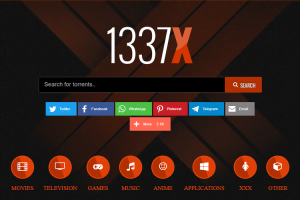Consumers know that finding the ideal mobile plan can be challenging. The major carriers each offer many plans, making your decision difficult. Prepaid carriers also provide great deals for high-speed data plans with mobile hotspot support and nationwide coverage – which may make finding the right one even harder!
Things to Consider When Choosing a Mobile Plan
Mobile plans are agreements between you and a mobile operator that give you access to the mobile network for voice, text messages and data services. Here are some important points to consider when looking for a mobile plan:
1. Know Your Needs
If your mobile phone plan doesn’t meet your needs – for example if you are experiencing spotty coverage, slow data rates or limited hotspot data – it might be time to switch. There are numerous alternatives out there which provide reliable coverage, reasonable costs and lightning-fast speed.
The first step to finding the ideal mobile plan is analyzing your own usage habits and data requirements, so as to avoid going beyond your monthly allotment of minutes and data and incurring extra charges that can quickly add up. You can visit https://www.lifewire.com/how-much-data-do-i-need for more information.
As prices typically decrease per line with larger plans, you’ll need to determine how many lines you need.
It can be beneficial and typically offer unlimited talking and texting within the United States; however it’s important to remember that certain family members may consume more data than others and you may require separate plans or opt for shared data options that meet everyone’s needs.
After considering your line requirements, the next step should be deciding if an unlimited plan or a fixed monthly allotment of data would best meet your needs.
While unlimited plans can save money and prevent overage fees, be mindful that many unlimited plans have various prioritization thresholds which could relegate some cellular data during network congestion to lower priority status.
Not to be outdone by the major carriers, there are several smaller providers with competitive pricing – known as Mobile Virtual Network Operators or MVNOs–who operate on similar networks but typically provide more cost-effective rates.
What exactly is an MVNO and how do they differ from traditional carriers? An MVNO refers to any carrier that doesn’t own its own wireless network but rents the signal, coverage and infrastructure of a licensed mobile network operator instead.
MVNO arrangements vary significantly: companies offering services under particular brand names typically implement their own marketing and tariff structure through sophisticated CRM systems while full-fledged MVNOs issue their own SIM cards and control core network elements such as HLR and MSC. You can visit this helpful site to learn more about HLR.
Most mobile virtual network operators (MVNOs) specialize in no-contract, prepaid markets where they can compete with the big three networks on price.
Their plans may offer low costs that provide great savings over time. Furthermore, most don’t require credit checks and many provide features such as international calling capabilities, Wi-Fi connections and unlimited data usage.
MVNOs don’t offer the same level of network quality as the Big 3, meaning some areas in your home or workplace could experience poor signal or slower speeds. Before switching, be sure to read reviews from previous users to make sure the network meets your needs.
As you review these providers, take note of any additional benefits they might offer that make them suitable. For instance, certain MVNOs provide discounted offers when you bundle their service with home services such as television and internet or even landlines.
2. Check the Network
Before signing a plan with any carrier, it is advisable to thoroughly research their network.
You can do this through using online maps provided by them or third-party websites; in particular you could check which carriers have superior 5G coverage or more dead zones in your area than others. You can also use tools like the ones found here: https://mobilabonnement.com to make your comparison faster and easier. It is essential to fully research your options.
Furthermore, take into consideration any data caps or restrictions (such as deprioritization during peak hours) of each plan as this can have a significant impact on your usage.
Another key consideration should be your monthly data usage. If you don’t require too much, then opting for a prepaid plan from smaller providers may be ideal – these plans tend to be cheaper than contract plans from major carriers while offering smaller data allotments. You could also choose pay-by-the gig plans for greater flexibility in managing your usage.
If you are an average data user, you should look for plans offering at least 40GB of high-speed data each month that provide a good cost/GB ratio, while also permitting any unused data to rollover to future billing cycles.
Heavy data users should opt for one of the larger carriers. They offer faster 4G networks and wider 5G coverage compared to smaller providers, are more likely to support connected devices like smart watches and tablets, and offer more family and device plans to choose from.
If you’re shopping for an inexpensive family plan for two people, we recommend considering a plan that offers unlimited high-speed data at a low price tag and nationwide coverage – though some networks may require activation fees or new phones when switching networks.
To make the best choice we recommend conducting compatibility tests first before switching providers.
3. Compare Plans
Selecting the ideal plan depends on a number of factors, including how much talk time, text messages and data usage you require. There’s no “one size fits all” mobile phone plan out there; therefore it is wise to shop around until you find the one best suited to you.
Also take into consideration any perks such as mobile hotspot, international data roaming or VoLTE (voice over LTE) service which might make a difference for you.
If cost is your primary consideration, there are plenty of cost-effective plans that provide generous data packages at reasonable rates. Keep in mind, however, that rural locations may incur extra taxes and fees that add an extra amount to their monthly bill; be mindful that service may be limited or costly in this area.
4. Make the Switch
Switching cell phone providers could save you money, whether its pricing, plans or coverage is inadequate (or all three!). But to make sure everything runs smoothly and you keep your number, there are a few steps that must be followed for this process to go smoothly and save you money.
Not to be overlooked is that while most phones work across all networks, switching could present some unique issues for your old phone if switching carriers. Before switching, check compatibility by entering its IMEI or MEID into your net carrier’s website, and don’t forget that unlocking might be necessary if yours has yet to be unlocked.
Step two is purchasing a plan and compatible phone from your new carrier. If you plan on keeping your old phone unlocked and compatible with their network, ensure it has unlocked bands and frequencies compatible with them; find this information either online through an eligibility portal.
Before returning or trading in your old phone to a new provider, take steps to secure its voicemail messages as these may not move with them – this way you don’t risk losing any important ones!
Depending on the wireless provider you switch with, most major wireless providers offer incentive programs with significant discounts on iPhones or other flagship devices when signing up with them.
A mobile plan is essential in communicating in today’s world. When you are considering making a switch, be sure to do your research in order to find the plan that will suit you best.
Conclusion
By carefully evaluating these factors and how they align with your needs, you can make an informed decision and select the mobile plan that best suits your lifestyle and preferences. Compare different offers and carefully consider what suits your needs and budget requirements best.


